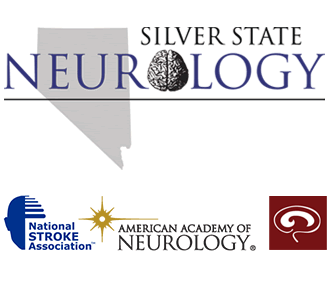Sleep Apnea is a very common sleep disorder which affects more than 22 million people in the United States. Unfortunately, 80% of moderate to severe sleep apnea cases go undiagnosed and untreated. Las Vegas neurologist Dr. Christopher Milford knows how important it is for people to learn sleep apnea symptoms. Included are sleep apnea signs you shouldn’t ignore. If you are experiencing these symptoms of sleep apnea, please see a neurologist in Las Vegas!
Please note that signs of sleep apnea can affect anyone at any age, even children. However, there are risk factors of sleep apnea that may put you at a higher risk. These include:
- being a male
- being overweight
- being over the age of 40
- having a large neck size (above 17 inches in men, and above 16 inches in women)
- having large tonsils
- having a large tongue
- having a small jaw bone,
- having a family history of sleep apnea
- Gastroesophageal Reflux or GERD
- Nasal Obstruction due to deviated septum, allergies, or sinus problems
Sleep Apnea is a very serious and life-threatening sleep disorder. Sleep Apnea is when the tissue at the back of the throat between the mouth and lungs can briefly collapse and become so restricted that breathing stops, momentarily or for longer periods.
There are two primary types of Sleep Apnea:
- Obstructive Sleep Apnea (OSA) – This is the most common diagnosed Sleep Apnea Disorder. This is where the throat muscles relax during sleep to such an extent that the passage of air to and from the lungs becomes blocked. When this happens the autonomic nervous system messages the brain which then wakes up briefly to reopen the airways and then usually tries to return to sleep.
- Central Sleep Apnea (CSA) – This is a less common condition and it is the opposite from OSA. This is when the brain forgets to tell the airways to remain open during sleep. This type of Sleep Apnea can occur in 1 in 5 cases. In most cases, CSA is triggered by other medical conditions such as strokes, Parkinson’s Disease, or brain infections. It can also be brought on as a side effects from opioids or narcotic medicines.
Some people can also suffer from Mixed Sleep Apnea (MSA). This is a combination of both Obstructive Sleep Apnea and Central Sleep Apnea in varying levels of severity and complexity.
Common symptoms of Sleep Apnea include:
- Irritability
- Memory Loss
- Loud or frequent snoring
- Choking or gasping sounds
- Unrefreshing sleep
- Morning headaches
- Silent pauses in breathing
- Insomnia
- Daytime fatigue
- Decreased sexual desire
- Difficulty Concentrating
Sleep Apnea is more common in children than is generally recognized. It is estimated that 1 to 4 percent of children suffer from Sleep Apnea, many of them being between the age of 2 and 8. Bed- wetting, sleep-walking, retarded growth, other hormonal and metabolic problems, even failure to thrive can be related to sleep apnea.
If left untreated, Sleep Apnea can result in a growing number of health problems including:
- Stroke
- Heart failure
- Irregular Heart Beats
- Heart Attacks
- Diabetes
- High Blood Pressure
- Headaches
- Depression
- Worsening of ADHD
If you suspect you may have sleep apnea the first thing to do is see your doctor. It is recommended that you bring with you a record of your sleep, fatigue levels throughout the day, and any other symptoms you might be having. Also, be sure to take with you an updated list of medications, including over the counter medications, with you any time you visit a doctor for the first time. Sleep Apnea is considered a Neurological Disorder therefore it is recommended to visit a Neurologist if you feel that you are suffering from symptoms related to Sleep Apnea. The range of sleep disorders neurologists treat is wide and includes insomnia, sleep apnea, restless legs syndrome, and narcolepsy.


